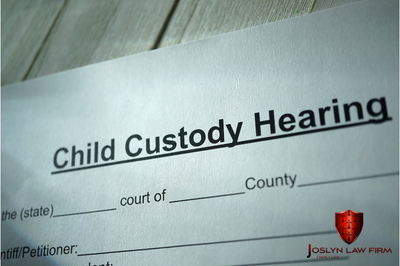Ohio Parental Alienation Lawyer Near You
 The relationship you have with your child is priceless. As they grow and develop, the time you share with them will likely be cherished and remembered forever. Because establishing and maintaining a good relationship with your child is so important, anything or anyone that threatens it could cause you extreme pain and anguish. Unfortunately, your child’s other parent knows this and may actively look to come between you and your child. Whether the motive is jealousy, revenge, or some other mental condition, it is important to know that if someone is trying to alienate your child from you, you are not alone, and you have rights.
The relationship you have with your child is priceless. As they grow and develop, the time you share with them will likely be cherished and remembered forever. Because establishing and maintaining a good relationship with your child is so important, anything or anyone that threatens it could cause you extreme pain and anguish. Unfortunately, your child’s other parent knows this and may actively look to come between you and your child. Whether the motive is jealousy, revenge, or some other mental condition, it is important to know that if someone is trying to alienate your child from you, you are not alone, and you have rights.
Joslyn Law Firm sympathizes with parents who are victims of parental alienation. As one of the premier family law firms in Ohio, we know the devastating effect that losing a relationship with a child can have. With our expertise in the law, we will fight hard to make sure your rights are protected and that you have an opportunity to establish and maintain a healthy relationship with your child. The time you have with your child is limited – reach out to us today by calling (888) USA-RIGHTS or by contacting us online.
Book a Free Consultation Today
Ohio Parental Alienation Information Center
What you need to know about Ohio parental alienation cases.
What Is Parental Alienation in Ohio?
As you may know, children are impressionable. They absorb information from their surroundings and the individuals they spend time with. For most children, what they learn comes from the people they are around the most – their parents. If you are not in a relationship with your child’s other parent, you most likely will be sharing time through a custody arrangement. This means that when you are not with your child, you don’t know what your ex is telling your child about you. Ohio child custody laws (ORC 3109.04) recognize parental alienation to be when one parent, intentionally or unintentionally, creates conditions that cause their child to turn on the other parent. Ultimately the child either no longer wants to see the parent or now has such a negative view of their parent that the relationship has been damaged significantly.
Unfortunately, parental alienation is all too common when children are thrust into the middle of a custody or child support battle. Parental alienation is often used as a means of retaliation. Many people do not know that parental alienation does not just affect the parent that is being alienated; it can also cause psychological trauma in the child. Children alienated from a parent often report sadness, anger, and trouble maintaining relationships later in life.
Types Of Parental Alienation
Parental alienation can occur through several different actions. All the types of parental alienation involve one parent doing or saying something that will cast the other parent in a bad light. The most severe forms of parental alienation involve outright lies and manipulation. In some cases, parental alienation can be grounds for a change in custody and may also be considered child abuse. Some of the types of parental alienation are:
Naïve Alienation – This is the mildest form of alienation and, as the name suggests, is usually done unintentionally. Naïve alienation often involves a parent making disparaging comments about the other parent or openly having arguments with that parent in front of the child. To be sure, naïve alienation can harm a child’s relationship with a parent, but it is still the most likely of all forms of alienation to be resolved in a healthy and favorable manner.
Active Alienation – Parents that are active alienators intentionally attempt to create a wedge between their child and the other parent. They do this by telling the child lies about the other parent, withholding the child, asking the child to keep secrets from the other parent, and manipulating the child through deception or other forms of dishonesty. Active alienation is not difficult to spot, but the damage it does is often very difficult to repair. Many parents and children that have been the victim of active alienation require years of therapy to rebuild and repair their relationships.
Obsessive Alienation – While similar to active alienation, obsessive alienation takes it a step further in that these parents are completely blinded by rage, anger, and pain. They often recruit other family members to bolster their efforts to alienate the child. They will use almost any tactic they believe will cause their child to turn against the other parent. This form of parental alienation usually cannot be stopped unless the child is removed from the care of the offending parent. Obsessive alienation is often aggressive and can be used as grounds for a child abuse claim.
What Causes Parental Alienation?
While every situation is unique, there are a few common reasons why a parent would seek to alienate a child from their parent. Still, it is important to remember that no matter the motivation, the negative effects that alienation can cause in a child are the same. Here are some of the causes of parental alienation:
Jealousy – Parents who are the victim of parental alienation often first notice alienating behavior when they begin a new romantic relationship. The alienating parent becomes jealous of the new relationship and begins to withhold the child or speak negatively about the other parent or their new romantic partner. Parents may also begin alienation because they are jealous of the other parent’s bond with the child.
Retaliation – Sometimes, a parent will engage in alienation as a form of punishment for a real or perceived wrong caused by the other parent. This could be a bad breakup, a failure to pay child support, a request for child support, or a change in custody. Ultimately the alienation is rooted in a desire to control the other parent, and unfortunately, the child is used as a pawn in this twisted game.
Mental Illness – While not currently considered a mental health disorder, parental alienation shares some similarities with other psychological afflictions. Parents that look to alienate the other parent from their child often do so for reasons that are not fully understood by a rational person. Their actions are sometimes rooted in anxiety or an intense fear of losing their child to the other parent.
Child Custody And Parental Alienation Cases in Ohio
 Accusations of parental alienation are usually made in connection with a child custody case. While the law in Ohio does not specifically mention alienation, it allows judges to consider behavior that could be considered alienating when they make their custody decisions. Some of the factors a judge can consider when making a custody decision are:
Accusations of parental alienation are usually made in connection with a child custody case. While the law in Ohio does not specifically mention alienation, it allows judges to consider behavior that could be considered alienating when they make their custody decisions. Some of the factors a judge can consider when making a custody decision are:
- The child’s interaction and interrelationship with the child’s parents, siblings, and any other person who may significantly affect the child’s best interest.
- The parent more likely to honor and facilitate court-approved parenting time rights or visitation and companionship rights.
- The ability of each parent to encourage the sharing of love, affection, and contact between the child and the other parent.
The law in Ohio makes it clear that parents that can work together and encourage a healthy co-parenting relationship with their child will be favored over parents who cannot. All of the factors that a judge may consider when deciding on custody revolve around what is in the child’s best interest. A parent who tries to disrupt, destroy, or otherwise harm the child’s relationship with the other parent will not be considered acting in the child’s best interest.
While parental alienation is not yet considered a psychological diagnosis, Ohio judges know it is real. If it can be shown that a parent is attempting parental alienation, a judge can modify a custody order and order a parent to stop the behavior. If it continues, the offending parent can be held in contempt of court, forced to pay fines, and potentially lose their right to see the child.
How To Prove Parental Alienation
Unfortunately, parental alienation is not always easy to spot. After all, alienating behavior is most likely to occur outside your presence. It is simply one parent’s word against the other’s in most cases. Still, there are ways that you can prove to a court that your child has been alienated from you. Some of the ways you can prove parental alienation are:
Social Media – If you have access to your ex’s social media postings, you may be able to find a laundry list of disparaging comments and photos that can tend to show alienation. While it is not recommended that you respond to the postings, documenting or saving them could be helpful to show alienation.
Text Messages – Often, you will need to communicate with your ex about matters concerning your child. If your ex texts you statements that may incriminate them or they admit to telling your child negative things about you, then it is recommended you save those texts to be used later.
Witnesses – Family members or neighbors may witness alienating behavior. If they are willing to testify in court about what they saw, that could be an effective tool in proving parental alienation.
Experts – Clinical psychiatrists and other mental health professionals may be able to interview your child and determine if they have been subjected to parental alienation. These experts know the right questions and can be called upon to testify to their findings.
The Effects Of Parental Alienation
Parental alienation is a form of abuse that can have long-lasting effects on both the victim parent and the child. Often these effects go unchecked and are only discovered years after the abuse has ended. Children who have been alienated from a parent often don’t realize they were being used by the alienating parent until they are much older. Of the children who recognize that they were alienated, many hold a deep resentment against the alienating parent and, in some cases, completely sever all ties with them.
It has long been known by behavioral psychologists that children do better in a healthy two-parent setting. When a parent tries to turn a child against the other parent, the end result is likely a single-parent upbringing. Numerous studies have concluded that children raised in single-parent homes have higher incidents of criminality, poverty, and substance abuse. Children caught in the middle of feuding parents often blame themselves and become withdrawn and anti-social. Joslyn Law Firm understands how devastating parental alienation can be and proudly represents parents who seek to restore and maintain a healthy relationship with their child.
How To Stop Parental Alienation in Ohio
In many cases, you will only be able to end parental alienation by taking your ex to court. Because custody laws can be complicated and proving parental alienation may involve presenting expert testimony, it is recommended that you hire an experienced family law attorney to represent you. While it may be possible to represent yourself, you will be taking a big gamble, and if your ex has a lawyer and you do not, then the odds of you coming out on top are slim.

If you do not have a current custody order, you will need to file for custody. You can ask the court for sole, partial, or shared custody. The court will conduct a hearing and decide on the child’s custody. During that hearing, you will have an opportunity to present evidence and argument concerning parental alienation. As mentioned earlier, if it can be shown that a parent exhibited behavior consistent with parental alienation, the judge will not look favorably on that parent and may limit the time that they have with the child.
In some cases, litigation may not be necessary to stop parental alienation. If the alienation is mild or naïve, you may be able to stop it by discussing it with your ex. You may want to submit to a family therapy session to air out your grievances in a safe space. Many parents exhibiting naïve alienation are open to changing their behavior once they become aware of it.
If the parent of your children turns your children against you, you may experience parental alienation syndrome. Severe parental alienation can damage the target parent and the child’s life. It can also have legal ramifications. That’s where our family law attorneys at Joslyn Law Firm come in. If you are a rejected parent with alienated children, you’ll want to consider hiring our family lawyers. We are experienced in parental alienation cases along with all major family law issues. We’ll review your situation and provide you with legal advice that matches your unique needs and goals.
Book a Free Consultation Today
Frequently Asked Questions About Parental Alienation Cases
Do I Need A Lawyer To Prove Parental Alienation?
While there is no requirement that you hire a lawyer to bring this claim, it is highly recommended that you do so. Parental alienation can be difficult to prove, so you will want an experienced lawyer presenting these types of cases. While every situation is different, many parental alienation claims require the use of expert testimony to show how the alienation has negatively affected your child and the parent-child relationship.
Can I Make A Parental Alienation Claim At My Custody Hearing?
Yes. Custody hearings are typically the most appropriate place to allege parental alienation. The judge hearing your case is allowed to consider behavior consistent with parental alienation in deciding your case. The law in Ohio says that the child’s best interests must be considered when making a custody decision. Behavior associated with parental alienation is specifically mentioned in the law as not being in the child’s best interest.
Can I Get Sole Custody If I Prove Parental Alienation?
It depends. While it is certainly possible for a judge to award you sole custody if they find there is parental alienation, the likelihood will depend on the unique facts of your case. Typically sole custody is awarded when there has been a history of abuse or obsessive parental alienation. Only your lawyer will be able to look at your case and give you an honest assessment of a potential outcome.
Parental Alienation Lawyers in Ohio
If you are like most parents, there isn’t anything you wouldn’t do for your child. You work hard to support them, and you sacrifice so they can grow up happy and healthy. So when someone intentionally tries to damage the relationship you have built with your child, they have not only attacked you, but they may also be harming your child. Joslyn Law Firm has built a reputation on standing up for the rights of parents that are the victims of parental alienation. We know what it takes to prove these claims and will not rest until we secure an outcome that allows you to establish and maintain a healthy relationship with your child. Put your trust in us and contact us today by calling (888) USA-RIGHTS or contacting us online.
Book a Free Consultation Today
What Our Clients Say
Read this 5-star Google review below regarding a complex family law case in Columbus OH
“Very kind and caring attorneys and staff. Would refer to anyone in need of a family law attorney.”
By: Abby Farber
Rating: 5/5 ⭐⭐⭐⭐⭐
Read more reviews on Google!
This page was last updated by Brian Joslyn

